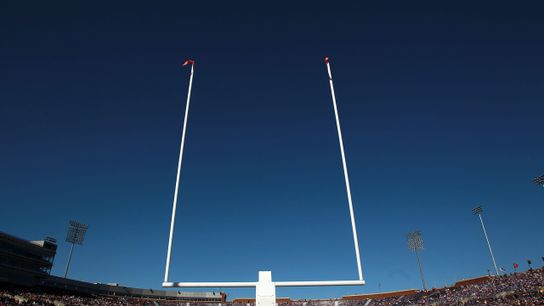When the Ivy League announced Wednesday that it will not play football this fall, it was met with a near unanimous, instantaneous response: this doesn't necessarily mean the FBS -- and Power 5 specifically -- will follow suit. Yes, it's true that the Ivy League was the first to pull out of the NCAA Tournament and everyone else eventually joined them, the calculus is different here.
But this obscures a larger point: The decision to play football ultimately boils down to optics. Can college sports leaders justify to a skeptical public that it is safe, it is necessary to put unpaid college football players on the field in the midst of an advancing pandemic?
While much of the focus inside the college sports world on testing and tracing athletes and coaches -- and, to be sure, this is a vitally important piece of the puzzle -- the conditions outside of campus matter just as much, if not more.
“There's absolutely nothing different between the Ivy League and any division except for the money, to be very blunt,” Senator Richard Blumenthal (D-CT) told USA Today. “It's about the money. And if the other schools fail to follow the Ivy League's lead, it will be only because of the money. And, in fact, it will be another misguided act in a long litany of putting school profits ahead of the people who play for them.”
Arguments to the contrary -- that Power 5 schools can throw money and resources behind testing that Ivy League schools may be unable or unwilling to match -- miss the larger point. A U.S. Senator just said anyone playing college sports this fall is doing so only for the money.
“Until two weeks ago, everybody felt pretty good about starting on time on Sept. 5 and Aug. 29,” West Virginia AD Shane Lyons told Sports Illustrated. “The last two weeks have really put a wet blanket on that, and we’re saying, ‘Maybe that’s not going to happen.’”
A survey of 115 FBS ADs conducted by Stadium found that 27 percent believed the season will start as scheduled. While that does stand as the most popular response (by 2 percent ahead of a conference-only season), we're less than two months away from a season that roughly three-fourths of FBS ADs don't believe will fully happen.
“I am worried about playing a season and hope we are not selling our soul just to play a season,” a Power Five AD told Stadium. “I truly believe we will have games canceled.”
There are an array of contingency options on the table, each arrives with problems and risks:
-- If the season is pushed back, what guarantee do you have that conditions won't be worse in November and December, specifically up north?
-- If a conference-only season is played, what do you do with independents? How would Group of 5 programs recover from losing vitally important guarantee game checks?
-- If the season is pushed to the spring, does that provide enough recovery time to play an on-time season in the fall of 2021?
-- And if a season isn't played at all, does the industry ever recover?
No good options are on the table, and each is bound to make hordes of people mad. For obvious reasons, the most preferable option is to play the season as scheduled.
And if that's the case, then the most important challenge in college sports right now is convincing the public -- starting with university presidents -- that playing football in September is safe and necessary in this climate.
Good luck.
